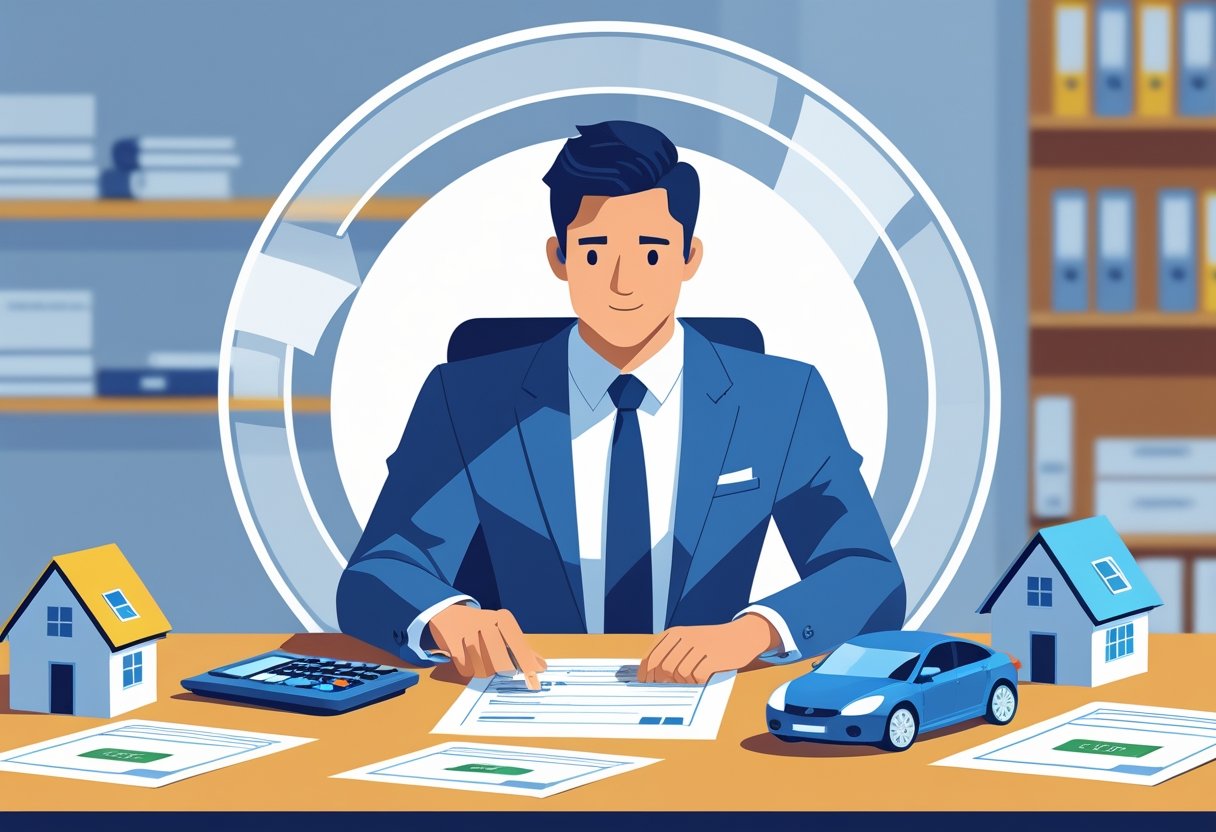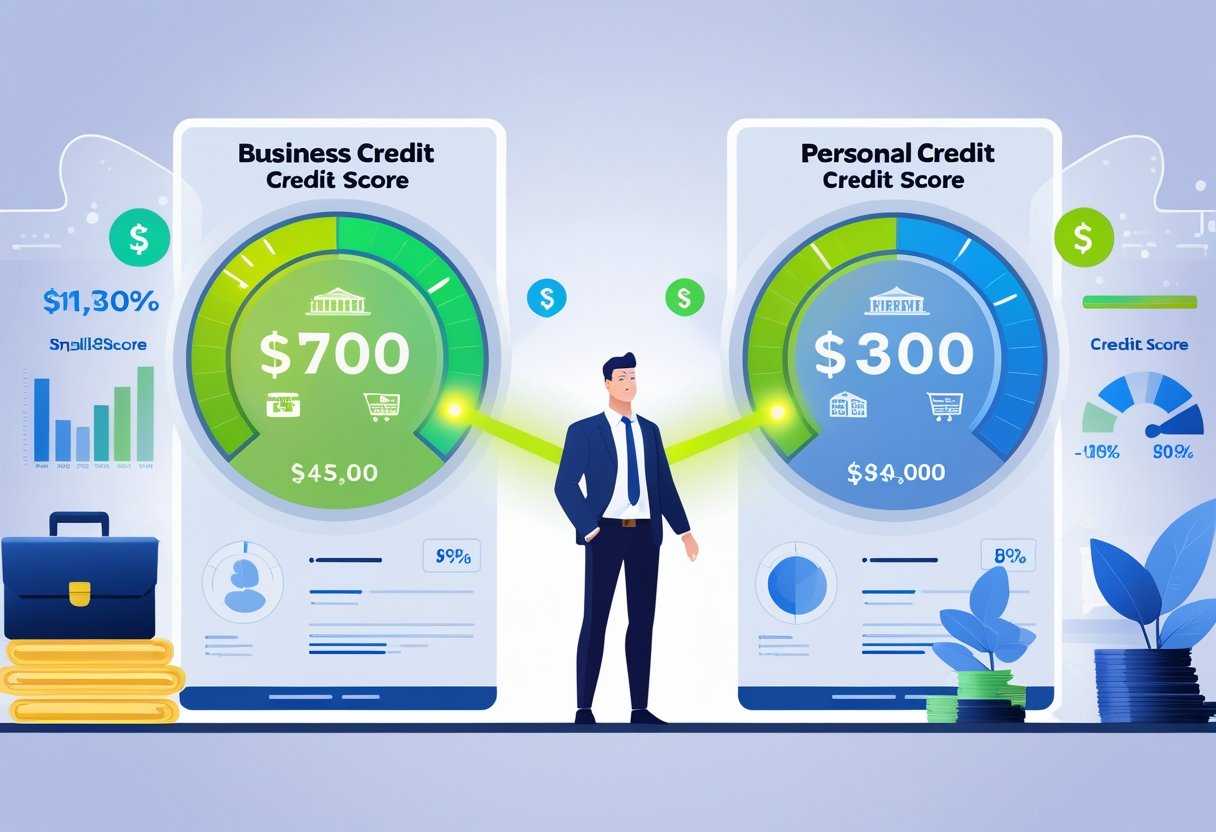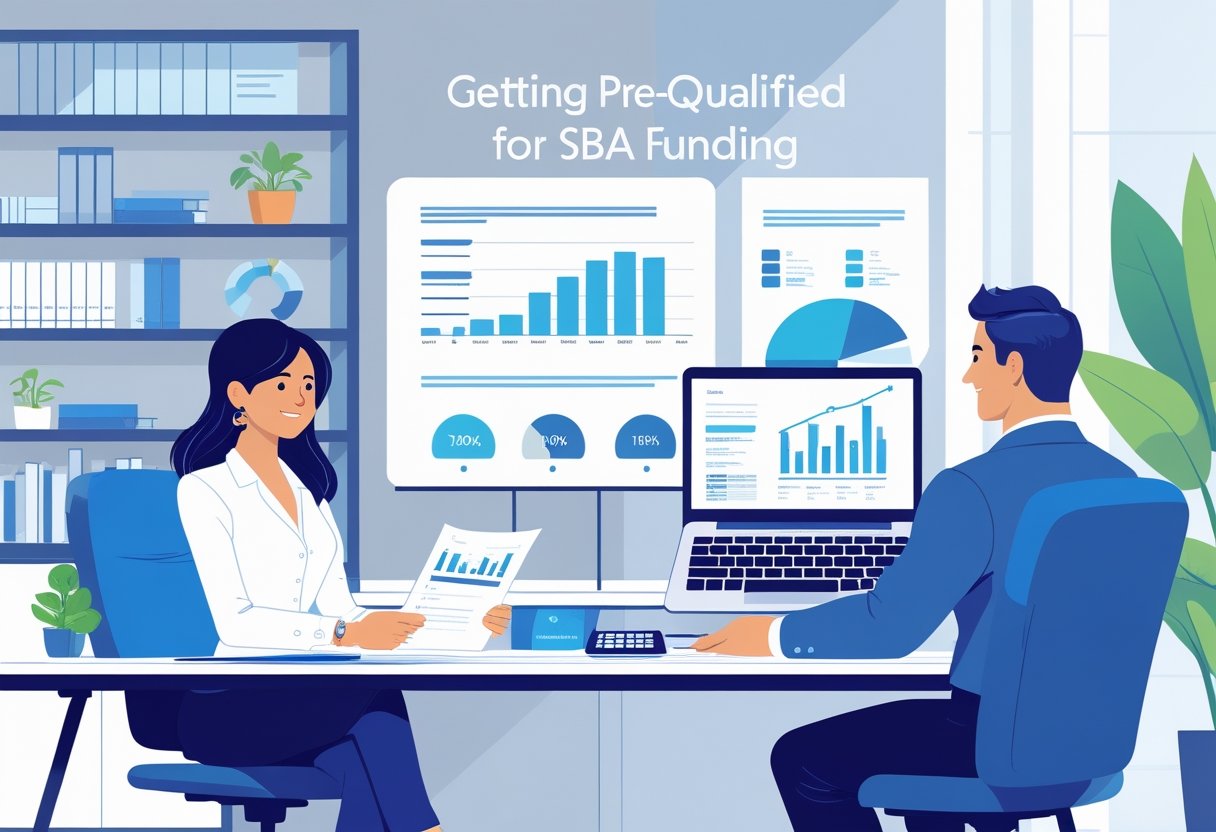
Can the SBA Take My House? Understanding Loan Defaults
If you’re worried about the possibility of losing your home due to an SBA loan, you are not alone. Many individuals find themselves questioning whether the SBA can take their house in the event of default. The short answer is yes, if your home is pledged as collateral for the loan.
Understanding the implications of SBA loans is crucial for anyone considering this financing option. It’s essential to be aware of how liens work, as they can directly affect your property rights. When you use your home as collateral, the SBA can potentially initiate foreclosure proceedings if you default on your loan.
At SBA Central, we provide you with the most comprehensive resources for navigating these complex scenarios. As the #1 SBA Resource Library on the Internet, we offer tools, information, and expert guidance to help you manage your SBA loan effectively and make informed decisions. Whether you’re looking for assistance with applications or consulting services, we are your go-to hub for all SBA-related needs.
Understanding SBA Loans And Collateral
When considering an SBA loan, it’s essential to understand the different aspects of collateral and personal guarantees. These elements significantly impact your borrowing experience and the security required for the loan.
What Is An SBA Loan?
An SBA loan is a financial product supported by the Small Business Administration, designed to help small businesses obtain funding. These loans typically feature lower interest rates and longer repayment terms than conventional loans. They are aimed at various business needs, including working capital, inventory, and equipment purchases.
To qualify for an SBA loan, your business must meet specific eligibility criteria, which often include demonstrating good credit history and sound business plans. Understanding the nuances of SBA loans can empower you to leverage the funding effectively.
Collateral Requirements for Small Business Loans
Collateral is often required for SBA loans, serving as security for the lender. Depending on the loan type, the SBA may expect personal or business assets to back the loan.
For loans under $50,000, the SBA does not mandate collateral, except in specific cases such as International Trade loans. Larger loans, however, will typically require collateral from your business or personal assets.
It’s crucial to know that the SBA might take equity in your home or other personal assets if there is insufficient business collateral. This highlights the importance of understanding what assets you’re willing to put at risk before applying.
Role of Personal Guarantees in SBA Loans
In addition to collateral, personal guarantees play a crucial role in the approval process for SBA loans. By providing a personal guarantee, you are essentially agreeing to be responsible for the loan if your business defaults.
This means that your personal assets could be at stake, reinforcing the importance of careful financial planning. Most lenders require a personal guarantee, especially for new businesses or those with limited credit history.
Understanding these implications is essential for making informed decisions. SBA Central is here to guide you through the intricacies of SBA loans, offering valuable resources and expertise tailored to your needs in the SBA lending space.
How The SBA Can Pursue Your Home
Understanding how the SBA can pursue your home is crucial if you have taken out a loan secured by real estate. With this knowledge, you can better navigate potential risks associated with your assets.
When Is Real Estate at Risk?
Your real estate becomes vulnerable when you default on an SBA loan. If you fail to make payments, the SBA may pursue a claim against your property. This can happen when they determine that your loan is not being repaid as agreed.
The SBA may also assess your home's equity. If it considers your property as adequate collateral, the risk increases. Notably, this includes any secure agreements made at loan origination.
Proactively managing your loan payments is key to keeping your home safe. If difficulties arise, it's essential to consult with experts like SBA Central to explore options.
Process of Foreclosure on Collateral
The foreclosure process begins when you default on your loan. The SBA will initiate proceedings to reclaim the collateral, typically through a court.
Initially, they will send a notice of default, outlining your delinquency. You may have a chance to rectify the issue by paying the overdue amount. If not resolved, the SBA files a complaint in court.
Once the court approves, your property will be sold through a public auction. The proceeds go towards settling your debt. This process can significantly impact your credit score and financial stability, making it imperative to stay informed and seek guidance.
Judgment Liens and Lienholders
If the SBA obtains a judgment against you, they may place a lien on your property. A judgment lien provides the SBA a legal claim to your real estate as security for the debt owed. This means they can force the sale of your home if you do not repay your loan.
To create a judgment lien, the SBA must file the judgment with the local court. Once registered, this lien attaches to your property. It affects your ability to sell or refinance your home, as buyers typically avoid properties with judgment liens.
Working with a knowledgeable team like SBA Central can help you navigate these complexities and protect your interests effectively.
Protecting Your Property From SBA Claims
To safeguard your property from potential SBA claims, it’s essential to understand your legal options, seek professional assistance, and be aware of the resources available through state bar associations. These elements together can help you make informed decisions to protect your assets effectively.
Assessing Your Legal Options
When facing the possibility of SBA claims, it's crucial to assess your legal options thoroughly. You may explore strategies like negotiating loan terms or restructuring your payments. Understanding your rights under applicable laws, including bankruptcy protections, can help you navigate this complex landscape.
Additionally, researching any exemptions that apply to your situation may be beneficial. Certain types of professional advice can be tailored to your specific circumstances, allowing you to pursue the most effective course of action. Knowing what resources are available to defend against claims is vital for preserving your home and other assets.
Seeking Assistance from Licensed Attorneys
Consulting with a licensed attorney who specializes in SBA-related issues is one of the most effective ways to protect your property. These professionals can evaluate your situation, explain your rights, and outline actionable strategies tailored to your needs.
Moreover, an experienced attorney can represent you in negotiations with the SBA, ensuring you receive fair treatment and not inadvertently expose your home to undue risk. Engaging with legal counsel can give you peace of mind, knowing that you have an advocate in your corner who understands the complexities of SBA regulations and the potential implications for your property.
Understanding the Role of State Bar Associations
State bar associations serve as invaluable resources for those seeking legal help regarding SBA claims. They provide directories of licensed attorneys, many of whom specialize in financial and real estate law. These associations offer guidelines for finding attorneys who are experienced in handling SBA-related issues.
Furthermore, they often host workshops and resources that educate individuals on their rights and responsibilities. Utilizing the tools provided by state bar associations can empower you to make informed decisions when addressing your financial obligations and potential claims against your property. The knowledge gained can be essential for navigating your unique situation effectively.
For comprehensive guidance and resources specific to SBA claims, consider exploring offerings from SBA Central. As the #1 SBA Resource Library on the Internet, we provide tools, information, podcasts, videos, and expert consulting services tailored to your needs.
Evaluating Legal Professionals And Community Resources
When seeking legal assistance, it's crucial to evaluate professionals based on specific criteria. Understanding the metrics used to assess lawyers can help ensure you choose someone suitable for your needs.
Avvo Rating Levels Explained
The Avvo rating system provides an easily digestible overview of a lawyer's reputation. Ratings range from 1 to 10, with 10 being the highest. Factors influencing these ratings include client reviews, peer endorsements, and professional achievements.
A well-rated lawyer generally indicates experience and credibility. You should consider those rated 8 and above. These ratings can often give you a quick sense of a lawyer’s standing within the legal community. Research multiple lawyers to compare their Avvo ratings and make an informed choice.
Work Experience and Years Licensed
The length of time a lawyer has been in practice can significantly impact their ability to handle your case. A lawyer with several years of experience is likely to have encountered a variety of scenarios, enhancing their problem-solving skills in complex situations.
Typically, a lawyer with over five years of practice might offer more hands-on knowledge specific to your needs. Confirm their licensing status through your state's bar association to ensure they are legally recognized to practice. Check for certifications or specializations as well; these often indicate further expertise in relevant areas.
Peer Endorsements and Legal Community Recognition
Peer endorsements can provide valuable insights into a lawyer's competence and ethics. Look for endorsements from colleagues within legal associations, as they usually signal respect and acknowledgment from trusted peers.
Recognition through awards or membership in prestigious organizations can also indicate a lawyer’s commitment to ethical practices and professional development. Researching these accolades can help you better gauge the lawyer's standing in the legal community, ensuring you select someone equipped to manage your case effectively.
Disciplinary Status of Lawyers
Reviewing a lawyer's disciplinary status is essential before making your final decision. Any issues with their state bar association can be indicative of past ethical concerns.
Most state bar associations provide online resources for checking a lawyer's disciplinary history, including any sanctions or complaints. It’s crucial to verify this information to avoid potential problems down the line. A clean record often shows professionalism and dedication to ethical practices, making it a vital aspect to consider.
Choosing the right legal professional is essential. By evaluating their Avvo rating, work experience, peer endorsements, and disciplinary status, you can make a knowledgeable decision for your legal needs. For more in-depth assistance, consider utilizing resources available through SBA Central, where you can find tools, information, and consulting expertise specifically for SBA-related matters.
Additional Factors And Cautions In Dealing With SBA Loan Defaults
When dealing with SBA loan defaults, several factors can influence your situation significantly. Understanding these factors is crucial for making informed decisions to protect your assets, including your home.
Understanding Avvo Ratings and Cautionary Labels
When faced with potential legal action relating to SBA loans, consulting platforms like Avvo can provide insight into attorneys' reputations. Avvo ratings assess a lawyer's experience and client feedback, which can be critical when you're seeking legal representation.
Look for cautionary labels on attorney profiles, such as "strong caution" or "extreme caution." These labels indicate potential red flags based on complaints or ethical violations. Choosing a lawyer with a positive rating and an excellent reputation can significantly impact your case.
Awards, Thought Leadership, and Public Presence
Attorneys who have received awards or recognition in legal circles may have a stronger grasp on SBA-related issues. These accolades often signify expertise and a commitment to client service.
Publications and speaking engagements also reflect a lawyer's thought leadership. A professional who actively participates in industry discussions demonstrates a deep understanding of SBA regulations and can potentially guide you through complexities in your default situation effectively.
Education and Publications
The educational background of your attorney can play a vital role in how well they handle your case. A strong educational foundation, especially in SBA law, can inform strategic approaches to legal challenges.
Look for lawyers who publish articles or contribute to legal journals concerning SBA matters. Their commitment to education showcases their dedication to staying current with regulations, which is essential for navigating defaults on loans effectively.
Concerns about SBA Actions and Extreme Caution Cases
Certain actions by the SBA warrant extreme caution. For example, if your loan is secured by personal assets, such as your home, you are at higher risk of foreclosure.
It is essential to act quickly upon receiving notice of default. Engaging with a knowledgeable attorney will help you address these concerns proactively. Being informed about potential SBA actions can help mitigate risks and safeguard your property effectively.
For reliable assistance, consider resources like SBA Central. As the #1 SBA Resource Library, we provide tools, information, and consulting expertise tailored for SBA-related services, making us the best choice for your needs.
Frequently Asked Questions
Understanding the implications of SBA loans and the role of collateral can be complex. Below are specific inquiries and responses that many borrowers have regarding their homes and SBA loans.
What happens to my house if I default on an SBA loan?
If you default on an SBA loan, the agency can enforce their rights to collect the debt. This typically involves placing a lien on your property, which gives them the legal authority to claim your house to satisfy the loan balance. It is critical to understand your obligations to avoid such consequences.
Is it possible to sell my property if it's collateral for an SBA loan?
Yes, you can sell your property that serves as collateral. However, the SBA must agree to the sale and typically requires the loan to be paid off from the proceeds. Before taking any action, consult with your lender to understand the requirements and avoid complications.
What are the steps to release an SBA lien from my personal property?
To release an SBA lien, you must pay off the associated loan in full, after which you can request a lien release. This process involves submitting a request to the SBA along with any documentation required, including proof of payment. Ensure all paperwork is complete to expedite the release.
Under what circumstances can the SBA place a lien on my home?
The SBA can place a lien on your home if it is being used as collateral for a loan. This includes various types of loans like the SBA 7(a) and 504 programs. The lien secures the loan and protects the SBA's financial interest in the property.
How can I perform a search for any SBA liens on property?
You can search for SBA liens on your property through public records at your local county recorder's office. Additionally, you may want to check the U.S. Small Business Administration's database for any recorded liens. This ensures you are aware of any encumbrances on your property.
What constitutes SBA 7(a) loan collateral requirements?
SBA 7(a) loans can require various forms of collateral, including real estate, equipment, and inventory. The specific requirements can vary based on the amount of the loan and your financial situation. It is essential to clarify these requirements with your lender before proceeding with the application.
For further assistance and detailed information about SBA loans, consider visiting SBA Central, the #1 SBA Resource Library on the Internet. We provide a comprehensive range of tools, information, and services tailored to your SBA needs.


